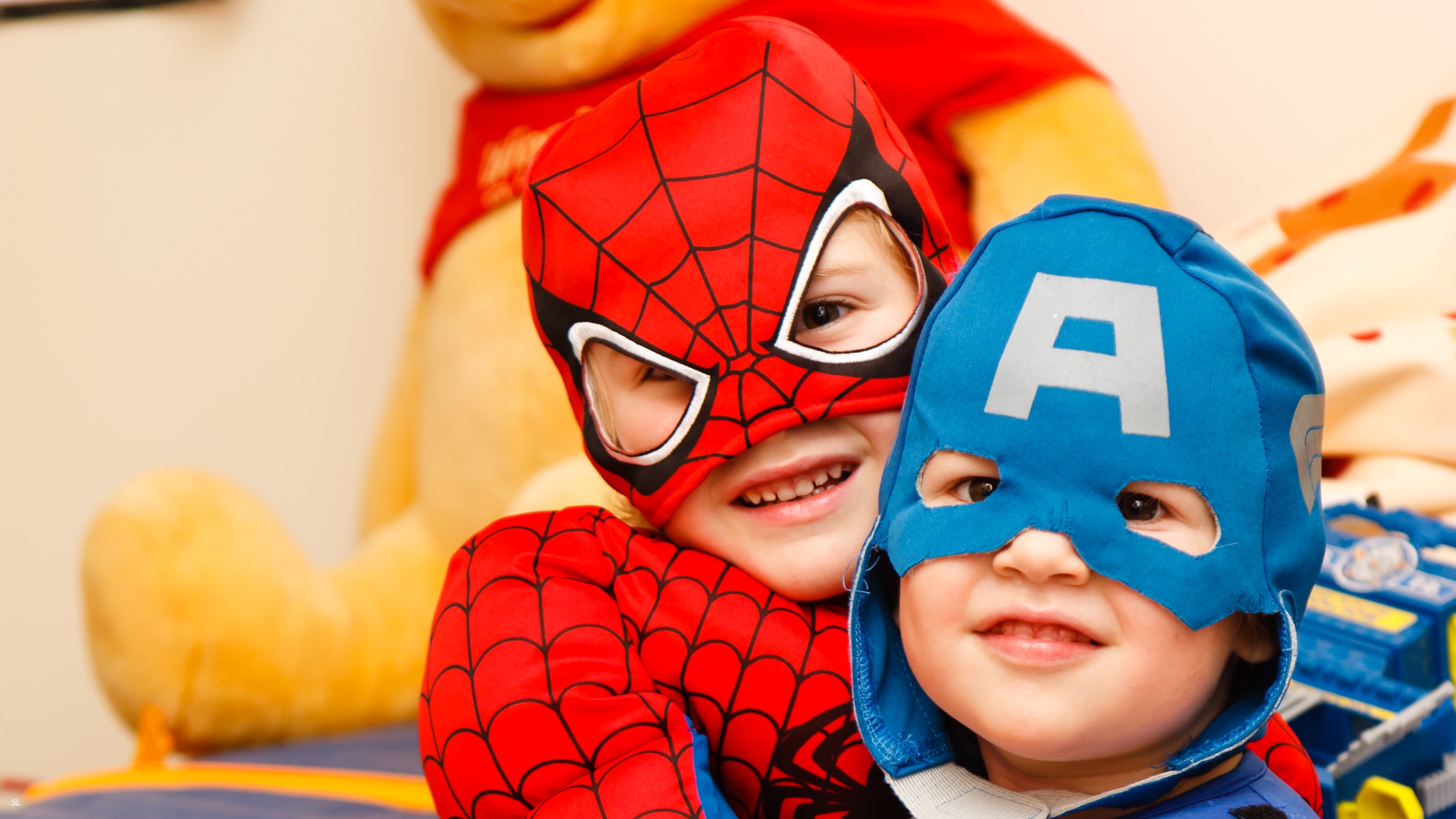Anyone who knows about the Barrington Area Library Youth Services Department knows that we love play of all kinds! One type of play that we just love is pretend play - from putt ing on some dress-up clothes to transform into a puppy dinosaur, to using play kitchen supplies to play house, to building a ship with blocks to sail the wide open seas. Sometimes children may not even need any toys or manipulatives to come up with fantastical scenarios.
ing on some dress-up clothes to transform into a puppy dinosaur, to using play kitchen supplies to play house, to building a ship with blocks to sail the wide open seas. Sometimes children may not even need any toys or manipulatives to come up with fantastical scenarios.
Even when the pretend play seems so outlandish that it no longer has any connection to reality, children are engaging in a process that will greatly benefit them later in life.
Most obviously, pretend play is a great way for children to flex their creative skills but it also allows them to work on critical thinking and problem solving skills. By working through the scenarios they create they are building cognitive abilities that will translate to real world skills.
 Pretend play also allows children to develop social and emotional health. Engaging in cooperative pretend play means that children are learning how to navigate social situations and learning how to interact with others, such as taking turns, making compromises, and understanding others. It also helps regulate emotional responses. Becoming too aggressive or throwing a tantrum if things don’t go the child’s way will inevitably stop the play, and no one wants that! Pretend play is also a great place for children to work through real life emotions, such as being scared or upset. They can work through these big feelings in a safe space and learn how to handle their emotions once they leave their imaginary world behind.
Pretend play also allows children to develop social and emotional health. Engaging in cooperative pretend play means that children are learning how to navigate social situations and learning how to interact with others, such as taking turns, making compromises, and understanding others. It also helps regulate emotional responses. Becoming too aggressive or throwing a tantrum if things don’t go the child’s way will inevitably stop the play, and no one wants that! Pretend play is also a great place for children to work through real life emotions, such as being scared or upset. They can work through these big feelings in a safe space and learn how to handle their emotions once they leave their imaginary world behind.
If that wasn’t enough, pretend play also helps develop language and communication skills. It takes a lot of non-verbal cues, talking it out, and clearly communicating the scenario for a pretend play session to be successful and fun for all involved - who wants to play if you can’t figure out what’s happening? Children will quickly learn how to use language and communicate with one another to provide themselves with the best play experience possible. It also gives them a chance to test out new vocabulary they may have learned at a visit to the doctor, zoo, or even the grocery store.
We all know how great pretend play is, but what can you do as a parent to make sure they are getting enough of the good stuff to make it happen?
 Talk to them. As you go through your day explain what you are doing and point things out to them - this increases vocabulary and gives them the building blocks to create their pretend worlds.
Talk to them. As you go through your day explain what you are doing and point things out to them - this increases vocabulary and gives them the building blocks to create their pretend worlds.
Provide some simple props. While there are some really great high tech toys out there, sometimes simple is best. A few dress up items, a couple dolls, and even some (child safe) kitchen items you no longer need are all fair game.
Encourage them. As children are building up an imaginary world, they may want to tell you all about it. Ask some questions and let them work through the answers all on their own. Sometimes they may not make much sense to us, but they are working on it!
Further Reading
The Need for Pretend Play in Child Development
Why Pretend Play Is Important to Child Development
8 Ways to Encourage Pretend Play in Kids
 Youth Services Librarian Demitra
Youth Services Librarian Demitra

